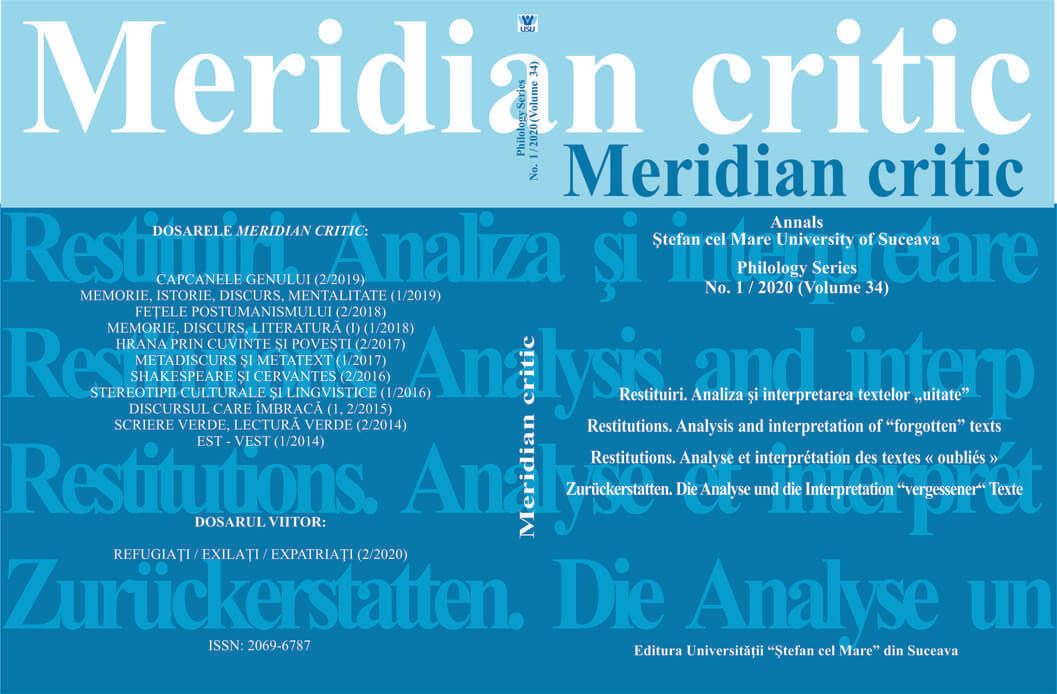Avangarda românească: o receptare târzie şi lacunară
The Romanian Avant-garde: Its Belated and Flawed Reception
Author(s): Emilia DavidSubject(s): Studies of Literature, Romanian Literature
Published by: UNIVERSITATEA »ȘTEFAN CEL MARE« SUCEAVA
Keywords: Romanian avant-garde;dada movement;futurism;literary magazines;anti-Marinettians;epistolary correspondences;manifestos;
Summary/Abstract: This paper will present some aspects regarding the reception of the Romanian historical avant-garde in Romanian literary criticism, taking into account authors who were active in the movement that was formed in Bucharest around the magazines “Contimporanul”, “Punct”, “75 H.P.”, “Integral”, and “unu”, but whose importance was “overlooked” or insufficiently highlighted on an editorial and exegetical level. One such example was the poet and theorist Stefan Roll. Romanian criticism has yet to examine the numerous echoes in the cultural press of an outstandingly significant event, such as the visit to Romania of the leader of the Futurist movement, F.T. Marinetti, in 1930. What is also lacking is a catalogue of the considerable number of Futurist manifestos and editorial notes that were disseminated in 1907-1910, before the founding of the Romanian avant-garde, in publications such as “Democraţia”, “Biblioteca modernă”, etc. On the other hand, we will show that in Romanian culture, unfortunately, there has been a belated and noticeably flawed recovery of the literary or cultural relations and exchanges that the Romanian-born representatives of the European avant-gardes, such as Tristan Tzara and Marcel Janco, established between the Dadaist magazines and Futurist or modernist literary periodicals from Italy, led by the directors with whom the two Romanian artists had interesting epistolary correspondences. I will illustrate these absences and gaps in the Romanian culture by referring to the only correspondence published so far in Romanian, between the friends Tzara-Iancu and Francesco Meriano. Meriano had a polyhedral evolution, in the sense that he experienced the first phase of Futurism, adhered to the spirit of the Dada movement and evinced, in the “La Brigata” magazine, which he led in Bologna, a sensible openness to other movements and branches of modernism and the European avant-gardes.
Journal: Meridian critic
- Issue Year: XXXIV/2020
- Issue No: 1
- Page Range: 11-26
- Page Count: 16
- Language: Romanian

